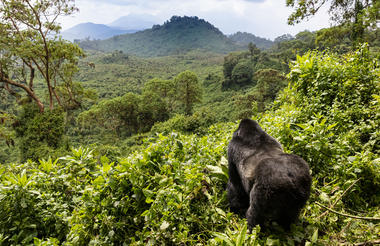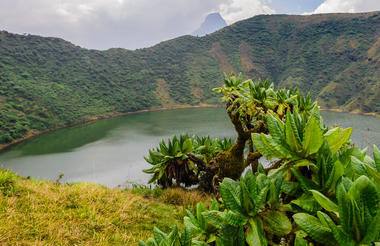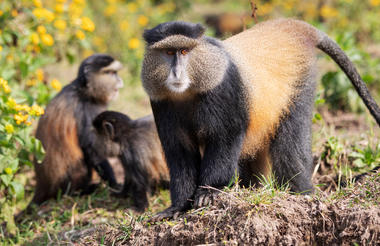The first thing that springs to most people’s minds when thinking of Rwanda is its turbulent political history. But today’s Rwanda is a far cry from the nation it was in the mid-90s: the country has emerged from the shadows and has much to offer visitors, most notably the tracking of endangered mountain gorillas in the lush Virunga National Park, which extends across the peaks and jungle-covered slopes of the volcanic Virunga Mountains. Other major tourist attractions include expansive Lake Kivu, ancient Nyungwe Forest with its rich population of primate species, and the game-rich savannah lands of Akagera National Park.
Rwanda’s capital and biggest city stretches across undulating lush hills surrounded by towering mountains, the largest of which is Mount Kigali, rising 1,850 meters above sea level. Kigali is the country’s financial, commercial and cultural hub, served by an international airport and featuring a wide range of accommodation options, restaurants and points of interest, including the Kigali Genocide Centre, an atmospheric market and numerous craft shops. With its interesting architecture, busy streets, meandering boulevards, and green hillsides, Kigali is said to be one of the most attractive cities in Africa and is definitely worth a visit.
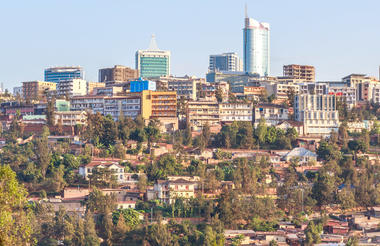
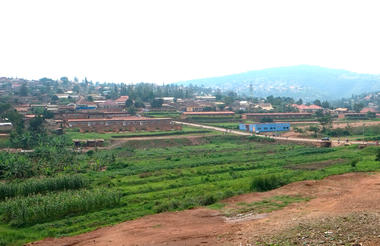
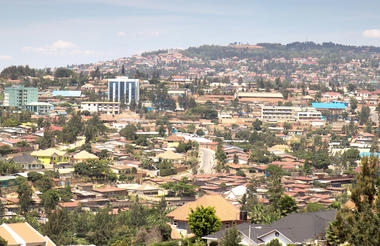
Bordering the Democratic Republic of Congo in Rwanda, the Volcanoes National Park is best known as a sanctuary for the region’s rare mountain gorillas. Visitors flock here to experience a face to face encounter with these intriguing creatures. The park is set high on the jungle-covered slopes of the volcanic Virunga Mountains. Highly regulated treks through the reserve allow visitors to spend an hour at a time with these incredible primates in their natural habitat. While the gorillas are without a doubt the main drawcard, visitors can also look forward to exploring a network of scenic hiking trails, visiting the tomb of the world-famous Dian Fossey and the Karisoke Research Centre, and enjoying a beautiful day hike to the crater lake on Mount Bisoke.
